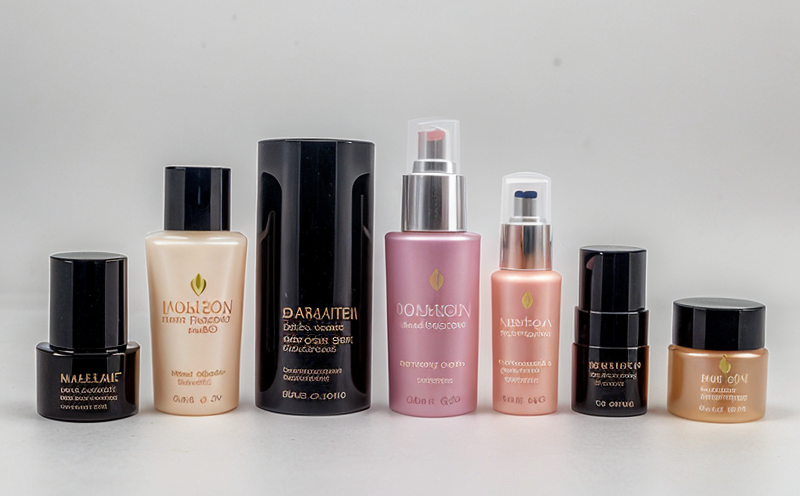Polymer Degradation Product Testing in Cosmetic Packaging
The integrity of cosmetic products is deeply intertwined with the quality and safety of their packaging. Over time, exposure to environmental factors such as light, heat, and humidity can lead to polymer degradation within the packaging materials, potentially resulting in harmful chemicals migrating into the product. This can compromise consumer health and safety, leading to recalls, legal issues, and significant reputational damage for brands.
Our service focuses on detecting and quantifying the products of polymer degradation that may migrate from packaging materials into cosmetic products. This is essential for ensuring regulatory compliance with international standards such as ISO 17924:2018, which sets out requirements for migration tests in contact with cosmetics. By conducting this testing, we help our clients understand the long-term stability and safety of their product-packaging combinations.
The process begins with careful selection of the packaging materials used for cosmetic products. Common polymers include polyethylene (PE), polypropylene (PP), polystyrene (PS), and polyvinyl chloride (PVC). Each polymer has unique properties, but they all can degrade under certain conditions. The degradation products that we test for include monomers, oligomers, and other small molecules that may be released into the cosmetic product.
Our laboratory uses state-of-the-art analytical equipment to perform these tests. Gas chromatography-mass spectrometry (GC-MS) is a key tool in identifying and quantifying the degradation products. This method allows for precise detection of even trace amounts of compounds, ensuring that no harmful substances are missed.
Specimen preparation involves extracting potential migration products from the packaging using appropriate solvents and solubilizing agents. The extracted mixture is then analyzed by GC-MS to identify and quantify the degradation products. This step-by-step approach ensures accurate and reliable results, which are reported in a comprehensive manner that includes detailed descriptions of the test procedures, conditions, and findings.
Understanding polymer degradation not only helps prevent health risks but also enhances product quality. By identifying potential issues early in the development process, our clients can make informed decisions about material selection and packaging design, leading to safer and more effective cosmetic products.
Why It Matters
The importance of polymer degradation product testing cannot be overstated, especially for the cosmetics industry. Regulatory bodies around the world are increasingly stringent about ensuring that all products on the market meet strict safety standards. For instance, the European Union's REACH regulations mandate that manufacturers demonstrate the safety of their products and packaging.
Failure to comply can lead to severe consequences, including product recalls, legal action, and damage to brand reputation. Additionally, non-compliance can result in financial penalties and loss of market share. By conducting this testing, our clients not only ensure compliance but also enhance consumer trust and satisfaction.
The cosmetic industry is highly competitive, and maintaining a high standard of quality is key to success. Our service helps clients stay ahead of the curve by identifying potential issues early on, allowing for timely corrective actions. This proactive approach ensures that products are safe, effective, and meet regulatory requirements.
Benefits
Avoids legal risks associated with non-compliance to international standards like ISO 17924:2018.
Ensures product safety by identifying and mitigating the risk of harmful chemicals migrating into cosmetic products.
Maintains brand reputation through consistent adherence to high-quality standards.
Enhances consumer trust and satisfaction, leading to increased market confidence.
Aids in the development of safer and more effective cosmetic products by identifying potential issues early in the process.
Complies with international regulations and standards, ensuring safe handling and use of cosmetics.
International Acceptance and Recognition
The testing methods we employ for polymer degradation product testing are widely recognized and accepted by regulatory bodies around the world. This includes compliance with ISO 17924:2018, which provides a framework for determining migration limits of substances from packaging into contact with cosmetics.
Our laboratory is accredited to perform these tests according to international standards, ensuring accuracy and reliability. By adhering to these guidelines, we provide clients with results that are accepted globally, thus facilitating smoother trade and compliance processes.





